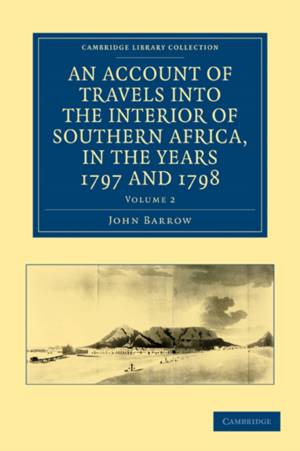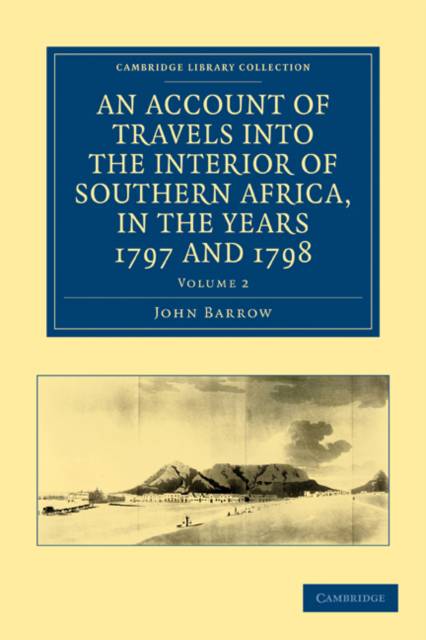
- Afhalen na 1 uur in een winkel met voorraad
- Gratis thuislevering in België vanaf € 30
- Ruim aanbod met 7 miljoen producten
- Afhalen na 1 uur in een winkel met voorraad
- Gratis thuislevering in België vanaf € 30
- Ruim aanbod met 7 miljoen producten
Zoeken
An Account of Travels Into the Interior of Southern Africa, in the Years 1797 and 1798
Including Cursory Observations on the Geology and Geography O
John Barrow
€ 78,95
+ 157 punten
Omschrijving
Sir John Barrow (1764-1848) was a distinguished British government servant whose diplomatic career took him to China and Africa, and who in forty years as Secretary to the Admiralty was responsible for promoting Arctic and Antarctic exploration, including the voyages of Sir John Ross, Sir William Parry, Sir James Clark Ross and Sir John Franklin. This account of his time in Southern Africa was published in 1801, with a second volume following in 1804. Barrow's exploration of the Cape Colony in 1797-8 coincided with the imposition of British control in 1795 on a former Dutch colony, making this work an important source about this transitional period. Volume 2 takes a political focus, and elaborates Barrow's belief that the Cape of Good Hope could serve the commercial interests of the growing British empire in the east; he also discusses the strategic advantages of stationing troops along the Cape.
Specificaties
Betrokkenen
- Auteur(s):
- Uitgeverij:
Inhoud
- Aantal bladzijden:
- 506
- Taal:
- Engels
- Reeks:
Eigenschappen
- Productcode (EAN):
- 9781108032780
- Verschijningsdatum:
- 22/09/2011
- Uitvoering:
- Paperback
- Formaat:
- Trade paperback (VS)
- Afmetingen:
- 152 mm x 229 mm
- Gewicht:
- 734 g

Alleen bij Standaard Boekhandel
+ 157 punten op je klantenkaart van Standaard Boekhandel
Beoordelingen
We publiceren alleen reviews die voldoen aan de voorwaarden voor reviews. Bekijk onze voorwaarden voor reviews.











